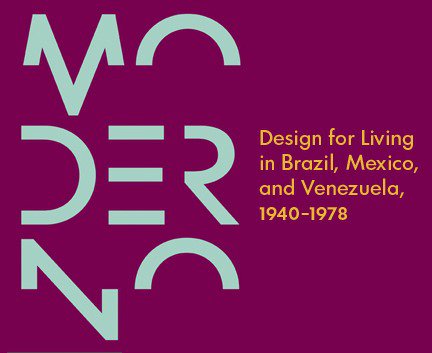Moderno
dal 10/2/2015 al 15/5/2015
Segnalato da
Miguel Arroyo
Odilon Avalos
Genaro Alvarez
Lina Bo Bardi
Geraldo de Barros
Jose Carlos Bornancini
Jose Zanine Caldas
Los Castillo
Felipe Delfingher
Jose Feher
Gego
Klaus Heufer
Aldemir Martins
Roberto Burle Marx
Cristina Merchan
Oscar Niemeyer
Rubén Nunez
Alejandro Otero
Arturo Pani
Miguel Pineda
Clara Porset
Nelson Ivan Petzold
Paulo Mendes da Rocha
Sergio Rodrigues
Cynthia Sargent
Mario Seguso
William Spratling
Donald Shoemaker
Joaquim Tenreiro
Felix Tissot
Tecla Tofano
María Luisa Zuloaga de Tovar
Pedro Ramirez Vasquez
Seka Severin de Tudja
Michael van Beuren
Paulo Werneck
Cornelis Zitman
Jorge Zalszupin
and Godfried Zielke
Tekla Zielke
Maria Cecilia Loschiavo dos Santos
Ana Elena Mallet
Jorge F. Rivas Perez
10/2/2015
Moderno
The Americas Society, New York
'Moderno: Design for Living in Brazil, Mexico, and Venezuela, 1940-1978' examines how design, one of the most innovative chapters in the history of Latin American modernism, transformed the domestic landscape in a period marked by social political changes.

Curated by: Maria Cecilia Loschiavo dos Santos, Ana Elena Mallet, and Jorge F. Rivas Pérez
Moderno: Design for Living in Brazil, Mexico, and Venezuela, 1940–1978 examines how design, one of the most innovative chapters in the history of Latin American modernism, transformed the domestic landscape in a period marked by major stylistic developments and social political changes. Sheltered from the overall destruction and disarray of World War II, many Latin American countries (specifically Brazil, Mexico, and Venezuela) entered an expansive period of economic growth in the late 1940s through the 1950s, which resulted in the modernization of major cities.
Although each country had unique cultural and historic particularities, modern ideals were fervently embraced as a vehicle for progress. The slogan “50 years of progress in five,” used in the 1950s by President Juscelino Kubitschek, best described Brazil’s national agenda for fast economic growth to illustrate the urgency of change across the region. Modernism was officially embraced as the suitable style for these nations and design was endorsed as an agent for development. By encouraging “a modern way of living” as an ideology, the desarrollista governments promoted the widespread adoption of their modernization goals.
The post-World War II years ushered in a period of artistic effervescence in Latin America. As national art scenes flourished, new design vocabularies were invented, and architects and designers began to see themselves as active players in the creation of modern national identities. With private and public support, Latin American designers developed their unique styles that reflected both the changing cultural climate and local material traditions. The robust economies of the period fueled consumption, and administrations promoted national industries, particularly those that supplied a growing demand for consumer goods for the home. This renewed utopian hope encouraged designers and studio-craft artists to produce modern pieces that were specifically adapted to local tastes, as well as environmental climates.
Moderno aims to reposition modern Latin American design within a larger global context to explore how an influx of European and North American architects, designers and entrepreneurs—including a surprisingly large number of women for the time—helped expand the field of design by fostering a cosmopolitan and creative environment. The Bauhaus and other European avant-garde groups were also influential to designers who incorporated these ideologies into innovative designs they produced for their regional publics. In addition, the groundbreaking international design competition “Organic Design in Home Furnishings” organized in 1940 by the Museum of Modern Art, featured a section devoted to Latin American design and played a significant role in the international dissemination of these designers’ works.
The exhibition will be accompanied by a 200-page hardcover catalogue that will include contemporary essays, as well as newly translated historical texts on design. In addition a one-day academic symposium will be held on February 12, 2015 with Jorge Rivas (Guest Curator), Luis Castañeda (Syracuse University), Patricio del Real (Museum of Modern Art), Gabriela Rangel (Americas Society), Zeuler Lima (St. Louis University), Ana Elena Mallet (Guest Curator), Maria Cecilia Loschiavo dos Santos (Guest Curator), Pat Kirkham (Bard Graduate Center), and Rodrigo Queiroz (Universidade de São Paulo).
Image: invitation
Opening: Wednesday, February 11, 7pm
Americas Society
680 Park Avenue
New York, NY 10065
Hours: Wednesday–Saturday
noon–6pm



